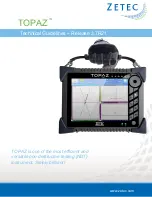
8-5
Low Ice Capacity, cont.
Possible Causes
Possible Solutions
Controls for regulating freezing
and thawing periods not adjusted
properly
For highest capacity, cylinder ice should have a small hole and crushed
ice should be about 3/16-in. [4.8-mm] thick. Adjust the freezer pressure
switch and thaw timer as needed. Refer to Chapter 9
Excessively high head pressure
Check water regulating valve or fan control adjustment. Clean the
condenser if needed. Check refrigerant table for appropriate pressures
and temperatures.
Warm makeup water for ice
making
Capacity of the machine is proportional to the water temperature during
ice making. Warmer water will reduce the ice-making capacity. Refer to
HFO10 Capacity Chart.
Drain valve open
Close drain valve.
Low refrigerant charge
Check for and repair leaks. Add refrigerant as needed.
Restriction in liquid line
Check for a partially closed valve, or for an obstruction at the dryer,
strainer, solenoid valve, or expansion valve. The liquid line will normally
have frost on the downstream side of a restriction, especially as the
suction pressure decreases.
High Head Pressure (Water-Cooled Machines)
Possible Causes
Possible Solutions
Misadjusted or defective water
regulating valve
Adjust or replace valve. Never adjust the valve stem as far open as it will
turn, because it will not close when the head pressure drops.
Insufficient water supply
Check size of water line and pump output at the condenser. Refer to the
specification sheet for water requirements. Check cooling tower sump
level and makeup water supply.
Cooling tower needs
maintenance
Check cooling tower fan belt and tighten or replace as needed. Check
spray nozzles and sump screen and clean as needed.
Non-condensable gas (usually air)
in system
Check refrigerant tables for appropriate pressures and temperatures. If
non-condensable gases are present, perform a total pumpdown. Let
stand for at least 6 hours, allowing non-condensable gases to collect in
the upper part of the receiver. Evacuate the freezer and attach a
recovery unit to the top receiver purge valve. Open the valve and
recover the vapor for about five minutes. When the freezer is evacuated,
open the thaw gas solenoid valve (D) manually for about 15 seconds,
letting the top vapor in the receiver blow into the freezer. Close the
solenoid valve and evacuate the freezer again. Evacuate to 500 microns
and restart the machine.
Fouled (dirty) condenser
Visually inspect condenser and clean as necessary.
Misadjusted or defective water
regulating valve
Adjust or replace the valve. Never adjust the valve stem as far open as it
will turn, because it will not close when the head pressure drops.
Summary of Contents for Tube-Ice HFO10
Page 2: ......
Page 6: ......
Page 10: ......
Page 12: ......
Page 16: ...2 4 Figure 3 Water Cooled Piping Schematic ...
Page 17: ...2 5 Figure 4 Air Cooled Piping Schematic ...
Page 36: ......
Page 40: ......
Page 43: ...6 3 Figure 16 Panel Layout 60 Hz Non CE Machines ...
Page 44: ...6 4 Figure 17 Electrical Schematic Control Circuit All Voltages 50 Hz ...
Page 45: ...6 5 Figure 18 Electrical Schematic Control Circuit All Voltages 60 Hz ...
Page 46: ...6 6 Figure 19 Electrical Schematic 3 Phase Power All Voltages 50 Hz ...
Page 47: ...6 7 Figure 20 Electrical Schematic 3 Phase Power All Voltages 60 Hz ...
Page 68: ......
Page 96: ......
Page 110: ...Notes ...
Page 111: ...Notes ...
















































